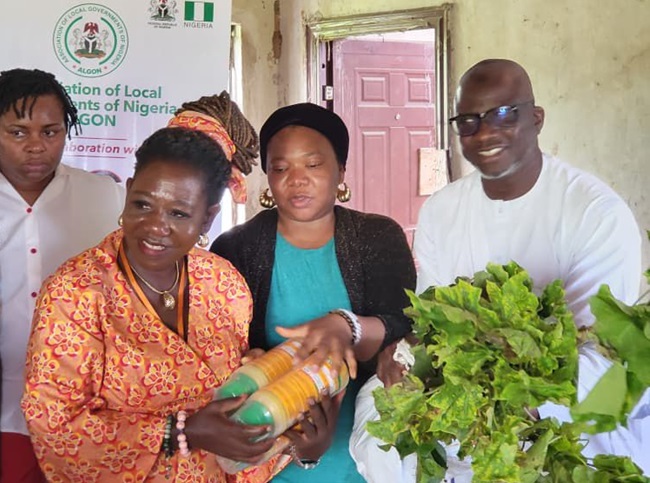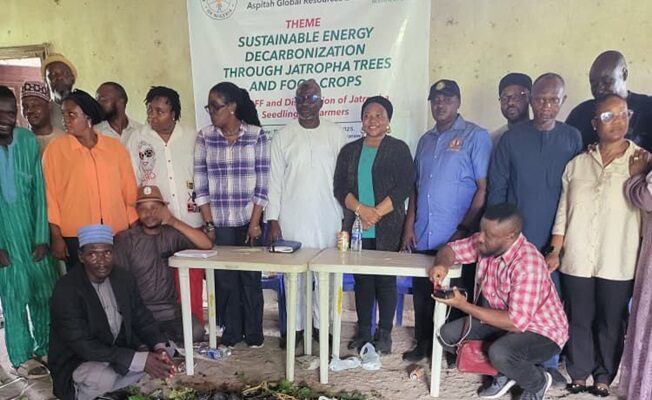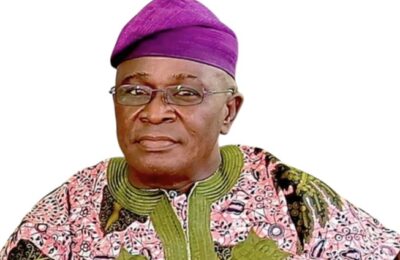By Stephen Adeleye.
The Energy Commission of Nigeria (ECN) has encouraged Nigerians to embrace the integration of Jatropha and Cassava for biogas production to strengthen energy security, create jobs, reduce waste, protect the environment, and drive rural economic growth.
This call was made by the Director-General/CEO of ECN, Dr. Abdullahi Mustapha, in a message to the flag-off of the “Sustainable Energy Decarbonization Project for Biogas Production from Integrated Jatropha and Cassava Plantation in Nigeria”, held in Karshi, Nasarawa State.
Dr. Mustapha, Represented by the Deputy Director, Head of Renewable Energy Department, Babagana Tella, highlighted the potential of combining Jatropha and Cassava crops.
He stated that Jatropha seeds contain up to 40% oil, making it a powerful resource for biofuel production, while Cassava residues can be converted into biogas.
“This integration offers several benefits, including sustainable land use, diversified income streams, environmental protection, and energy security.
“With collective effort, Nigeria can lead Africa in sustainable bioenergy development”, he said.

The ECN DG emphasized that the integration of Jatropha and Cassava for biogas production is not just an agricultural innovation but a national opportunity that can strengthen energy security, create jobs, reduce waste, protect the environment, and drive rural economic growth.
He assured that the Commission is ready to work with policymakers, investors, farmers, and researchers to make this vision a reality.
The Chief Executive Officer of Aspitah Global Resources Ltd., Latifah Aspitah Isah, noted that the initiative aims to empower rural communities, particularly women, who make up 69% of farmers in the region.
He said the company has distributed 2,000 Jatropha seedlings to women farmers, cooperatives, and youths, and has assured farmers that it will buy back the seeds when harvested.
This project marks a significant step towards Nigeria’s sustainable energy development and has the potential to create a brighter future for the country’s energy sector.




